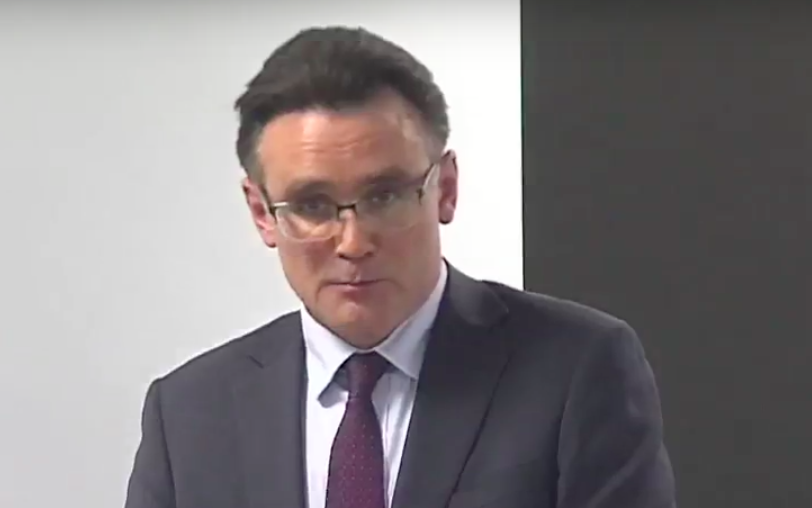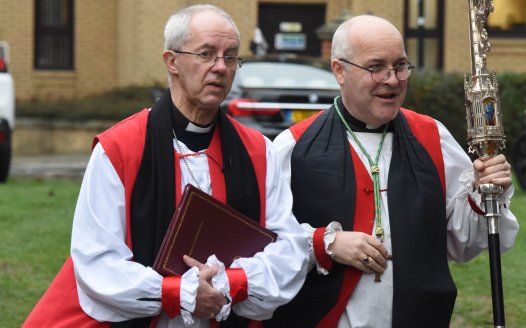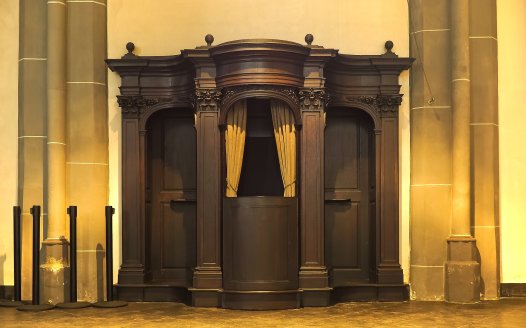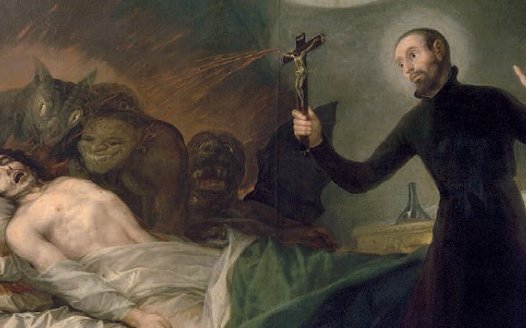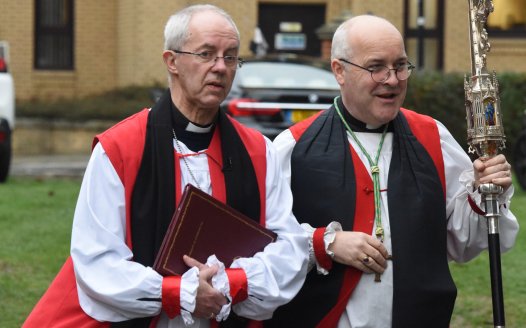The C of E cannot be trusted to deal with safeguarding complaints in house
Posted: Mon, 5th Mar 2018 by Richard Scorer
On the first day of hearings into child sexual abuse in the Church of England, NSS vice-president Richard Scorer told an inquiry that protecting children requires independent oversight and mandatory reporting.
Earlier today I addressed the Independent Inquiry into Child Sexual Abuse (IICSA) on behalf of 21 clients who suffered sexual abuse in the Anglican Church. Over the next three weeks, IICSA will be hearing detailed evidence about the Church of England's failure to protect children, particularly in the Diocese of Chichester but also nationally. My brave clients and the other survivors who have courageously come forward to give evidence to IICSA will be speaking for many more: The Church of England recently revealed that in 2016 alone there were over 700 safeguarding cases involving clergy and church officials, a truly appalling statistic.
It is clear that many survivors, in trying to bring their abuse to light, have also faced years of institutional cover up and denial. Recently a group of survivors attended the general synod of the Church of England to hear the safeguarding presentation. In a statement read on the steps of Church House, they said: "Many of us have suffered not only the abuse itself but also years of manipulation, blanking and lies by bishops and leaders in the Church of England. This second form of abuse is as bad if not worse than the first. For some of us this has gone on for years and causes illness and health problems and continues to do so. This is how the church treats us and it could never be described as Christian behaviour. The self-preservation of the church has been put before victims time and time again".
Against that backdrop of that survivor experience, and the gross failure that it represents, the question for IICSA is whether the Church of England can now be trusted to put its own house in order, and to retain responsibility for handling safeguarding failures in the future. As I told IICSA, to answer that question requires an honest and realistic assessment of the factors which led to this crisis, and of the measures that are now required to overcome them.
As we saw in December when IICSA looked at the Catholic Church, whilst many organisations, both secular and religious, have experienced abuse scandals, in religious organisations there are particular cultural factors which promote the cover-up of abuse. The churches are particularly prone to the temptation to cover up abuse for reputational reasons. The Church of England as the established church claims to offer moral guidance and moral leadership to the nation. Yet clerical sex abuse cases and the scandals associated with them powerfully undermine that claim. This leads to the cover-up of abuse. It can also lead to a cognitive dissonance – a belief that a priest is by definition a good man who couldn't possibly be responsible for abusing children, or, where the evidence is irrefutable, the offence is put down to a momentary and forgivable lapse, often blamed in part on the victim. This mentality far too often translates into a view that the church is above the law.
This is exactly what we saw from the former archbishop of Canterbury, George Carey, in 1993, when he considered how to handle the allegations against Bishop Peter Ball. Ball was under police investigation for a single offence, against a young man called Neil Todd. Lambeth Palace became aware of no fewer than six allegations from other young men against Ball, but decided not to pass these to the police. In the full knowledge of these other allegations, Archbishop Carey himself wrote to the police to tell them that the Todd allegation was "most unrepresentative" of Ball's behaviour. As the Gibb report confirms, Archbishop Carey had decided that Ball was "basically innocent" – because what else could a senior bishop possibly be. And once the archbishop had appointed himself to be judge and jury of the allegations against Ball, it followed that there was no reason to share the truth with the authorities. Even after Bishop Ball's caution and resignation in 1993, senior church leaders like Bishop Eric Kemp denigrated his victims. They allowed Ball to regain much of his standing within the church, and many of his preaching privileges. They allowed him to carry out priestly duties in schools. They allowed him to get away with officiating even to the extent of impersonating his brother, the Bishop of Truro. Knowing full well that he was the subject of multiple allegations of sex abuse, they sought to rehabilitate his public reputation.
I predict that over the course of the next three weeks at IICSA we will see that the same sort of clericalist mentality exposed time and time again. The arrogance which equates the church with God, and which places reputational protection before the interests of victims, is encapsulated in the attitude of one of the Chichester Bishops, Wallace Benn. This is described in the statement one of his colleagues, Archdeacon Phillip Jones, filed with the inquiry. He paraphrases Bishop Benn as stating he was not prepared to acknowledge any shortcomings or past failures in safeguarding, because "his primary concern was for the honour of God and therefore he was not prepared to say or do anything that would tarnish God's reputation or bring Him into disrepute". Jones goes on to say this sounds far fetched, but "it was consistent with Wallace Benn's theological stance and his absolute belief that as God's servant, he should not bow to pressure in this connection".
Other features of religious culture can readily be misused by abusers. As the Gibb report noted, with Bishop Peter Ball, religious rites became "a mask for abuse, and theology was used as a way of justifying abuse". The abuse perpetrated by Ball was "charged with religious intensity" and in committing his offences Ball "exploited the significance of ritual, particularly in the Anglo-Catholic tradition". The evil of what he did was "compounded by his message that this made the victims more special and more holy". In addition, in Christian organisations abusers can often be protected from accountability by a distorted concept of forgiveness. Forgiveness can be misapplied, which allows perpetrators to reoffend. In Chichester, conservative evangelical offenders especially could convince themselves that they had been forgiven by God and hence there was no need to be accountable for their offences to secular authorities. Archdeacon Jones describes the Church of England chaplain and serial sex attacker Gordon Rideout as thinking that "he was able to deny all the charges against him and then continued to deny them despite conviction, because he believed he had been forgiven by God, 'justified' in New Testament terms, his slate wiped clean and that, in his mind, it was as if all the events and conduct complained of had never occurred." It must be clear now that if you want to abuse children, there is no more effective way of terrifying and silencing your victims than claiming to have God on your side. And if you combine that with an environment in which perpetrators are routinely forgiven and victims disparaged, and in which there is no legal obligation to report allegations of abuse to the statutory authorities, you have the perfect honeypot for attracting more abusers. These issues help to explain why it is that although many secular institutions have also suffered from abuse scandals, the churches seem to be particularly susceptible to such scandals and ill-equipped to confront them.
As is very apparent from the history of the Chichester diocese, the Church of England has for years been characterised by poor safeguarding practice and awareness. I suggested to IICSA that this is partly an issue of attitudes and partly an issue of competence. Shirley Hosgood, who was Diocesan Safeguarding Adviser in Chichester from 2007 until her resignation in 2010, says that although there was support for safeguarding at parish level, "this level of commitment was not replicated amongst the senior clergy and at times I found their attitude to safeguarding problematic". Senior clergy were reluctant to give due weight to safeguarding concerns and her specialist knowledge and experience was not always acknowledged or valued, nor her advice accepted. When the independent Meekings report on abuse in the diocese was delivered, it was clear that the diocese was unwilling to accept the findings and Ms Hosgood found herself excluded from seeing it, and from discussions about it. She recalls attending a training session on "emotional intelligence in safeguarding", and immediately after that session she spoke with archdeacon Philip Jones, who had also attended. He then gave her the extraordinary instruction that the Meekings report was not to be shared with the Diocesan Safeguarding Group. As Ms Hosgood says in her statement, "this decision was contrary to the training we had received that day which had stressed the importance of transparency and openness".
Ms Hosgood encountered the same attitudes in regard to the Gordon Rideout case. Bishop John Hind did not feel that suspending Gordon Rideout's permission to officiate was justified as the allegations were historic. He was reluctant to accept the unanimous recommendation of the safeguarding advisory group. Ms Hosgood says that she "had the impression that senior clergy did not trust external experts to make the right call about safeguarding matters for the diocese These are the external experts, of course, who know vastly more about safeguarding than a bishop could ever do, but Bishop Hind felt he knew better. Shirley Hosgood notes that there was a reluctance to provide counselling to victims out of fear that offering support or an apology to victims would expose the church to liability. Church lawyers interfered with the wordings of apologies. This will come as no surprise to a client of mine who will be giving evidence in these hearings, and IICSA will hear about the offence and distress that was caused to him by the way in which apologies were so caveated by lawyers as to be almost worthless. In the end, as IICSA will be hearing, Ms Hosgood resigned and says that "the diocese's failure to cooperate or support me in my efforts to carry out my duties as diocesan safeguarding adviser betrayed at best a misunderstanding and at worst an indifference to safeguarding work".
However, this is not simply an issue of attitudes but of competence too. This point has been made powerfully by Martin Sewell, who is both a lay member of the General Synod and a retired child protection lawyer. He points out that diocesan staff are typically trained in theology and canon law, not in safeguarding or child protection law. As a result, he says, many of those making decisions about safeguarding in the Church of England have no credible claim to expertise in this increasingly complex specialism. Interestingly, Mr Sewell makes that point in relation both to the treatment of complainants of abuse, but also in regard to the mishandling in his view of the George Bell case. He sees these failings as two sides of the same coin – a fundamental problem in his view being a lack of competence and specialist knowledge, particularly legal knowledge and experience gained in a practical safeguarding context.
As IICSA looks at these issues, it will need to make some assessment of the adequacy of current church safeguarding policies and procedures. A detailed and highly critical analysis of that safeguarding policy has recently been conducted by the campaign group Mandate Now. In summary Mandate Now describes the Church of England's safeguarding policy documentation as "a thicket of inconsistent discretionary 'guidance', which carries with it the risk of confusion, mistake and non-compliance". It goes on to say that "the challenge presented to anyone tasked with delivering safeguarding in the Church of England is the sheer volume of its 'guidance'. Clear and readily comprehensible procedures (insofar as they exist at all) are hidden like needles in a haystack. It does little to establish who is actually responsible for doing what and when". Most importantly, they say, there is simply no clear direction or requirement that allegations must be reported to statutory authorities – the guidance repeatedly uses the word 'should' about reporting externally, where the word it needs to use is 'must'. Mandate Now concludes that "there is no clear overarching commitment to refer any child protection issues which arise to independent authorities outside the church".
So the overarching question for IICSA, through this and the subsequent hearings, is whether the Church of England's safeguarding can safely be left to the church or needs independent oversight.
On the positive side — and I want to acknowledge the positives as well as pointing out the many negatives — in trying to build a culture of safeguarding the Church of England does have one advantage over the Catholic Church – it has at least abandoned the absurd and offensive notion that women must be excluded from its power structures. Women bishops in the Church of England are clearly among the more progressive in their attitudes to safeguarding and their concern for survivors. So that is certainly a favourable point of comparison with the Catholic Church.
But of itself this it is not anything like enough. Within the Church of England, as in the Catholic Church, there is a fundamental structural problem. This is the fact that diocesan bishops are not formally accountable to anyone. As Archbishop Welby says in his statement filed with IICSA, "diocesan bishops have a largely autonomous role". He goes on to say: "I have no legal power to direct that bishops take specific action or to dismiss a bishop". He can try to influence them, but he cannot direct them. The diocesan bishop is king in his diocese. The power and status of the bishops is hardwired into the culture of the Church of England. One of my clients who complains of abuse by a former bishop said: "the bishop told me he had the power to give me everything I wanted in life and the power to take it all away". That was from a diocesan bishop who was also an abuser but the statement encapsulates the broader issue of the unaccountable power of bishops in church structures which were conceived in medieval times. The structure of the church simply does not provide for safeguarding decisions and policies to be implemented consistently. Bishops have the power to employ and dismiss safeguarding advisers. As the history of Chichester demonstrates, if a diocesan Bishop is resistant to safeguarding there is no real lever to overcome this. At the recent safeguarding presentation at the general synod, the bishops were asked from the floor how they propose to create a structure of accountability in the church. The answer was vague to say the least.
The Bishop of Bath and Wells, the current lead bishop for safeguarding, stresses in his IICSA statement that bishops now have an obligation to pay "due regard" to national safeguarding policies and in theory, the Church of England's National Safeguarding Team (NST) could now initiate a clergy discipline measure against a bishop who failed in that respect. Also, in theory at least, the rules relating to diocesan safeguarding advisers have been changed, so that they can act independently of their bishop. However, IICSA needs to ask whether in the real world of the existing Church of England those measures will make a material difference. Experience suggests it won't. When the Diocesan Safeguarding Advisory Group in Chichester raised a CDM complaint against Wallace Benn, it was dismissed. When Shirley Hosgood tried to challenge her bishops, she was marginalised and pushed into resignation. The measures which the church now claims will keep errant bishops in line are cumbersome and convoluted workarounds – they are highly unlikely to be effective in practice.
So, as I said to IICSA, this appalling abuse scandal has deep roots in the cultural and the structure of the Church of England. In reality, neither that culture nor that structure are going to change, or at least not sufficiently to give anyone confidence that the same scandals will not be repeated in the future. It is also very clear now that the NST has simply lost the confidence of survivors. In this respect I quoted from the statement made recently by the Reverend Graham Sawyer. Sawyer is a current Church of England vicar and also a survivor of abuse by Bishop Peter Ball. He said:
"As one of the people about whom Bishop Peter Ball pleaded guilty with respect to historic sexual offences I forgive Bishop Ball from my heart for what he did to me and wish him no ill will whatsoever. I also have absolutely no doubt about the personal integrity, competence and compassion of Bishop Peter Hancock as lead bishop for safeguarding.
"That said, the cruel and sadistic treatment I have faced from the National Safeguarding Team in Church House and others in the Church of England hierarchy makes what Bishop Ball did to me pale into insignificance: this comes as a result, I believe, of a deep-rooted narcissism.
"We cannot move forward as a church with respect to truth, reconciliation and peace until the National Safeguarding Team is abolished: it is, in short, wicked in the way it treats survivors/victims of sexual abuse as I know only too well from my own experience."
So that is a Church of England vicar and survivor talking from his own direct knowledge and experience. The simple fact is that this description of the NST reflects the view now of many survivors – that is how they feel about it from their own experience. The NST has totally lost the confidence of survivors.
Given this, IICSA needs to look at radical solutions. I invited them to consider two radical changes in tandem: an independent body to oversee the conduct of safeguarding in the church; and mandatory reporting.
The idea of independent scrutiny of church safeguarding and investigation of complaints has already been suggested by the safeguarding expert Ian Elliot. Nobody is suggesting that responsibility for safeguarding itself should be removed from the church – day to day safeguarding clearly has to be owned by the church in order to be effective. What the independent body would do would be to supervise the implementation and conduct of safeguarding, and it would have to have the power to override those bishops who are unwilling to comply with their responsibilities, and order them to comply. In certain circumstances, it may investigate complaints, although it would not be a substitute for the statutory authorities.
It must be evident now that the church dealing with complaints in house is a recipe for disaster. The strong relationships and personal ties within closely knit church circles make it extremely difficult for complaints to be investigated without conflicts of interest. Many victims will not want to go through church complaint processes at all. It is obvious that the assessment of allegations within the church itself is tainted by the influence of insurance lawyers. This simply has to stop.
And turning finally to mandatory reporting, it should be clear from the evidence already available publicly that most of the high profile cases in Chichester could and should have been reported to the police at an earlier date. Wallace Benn failed to pass on to the police details of Roy Cotton's previous convictions, and allegations against Robert Coles. He did not want the diocesan safeguarding adviser to be informed of Gordon Rideout's past. Archbishop Carey failed to pass on to the police the information that he held regarding Peter Ball. Had those allegations been passed on the perpetrators would have prosecuted much sooner, abuse would quite possibly have been prevented and at least some survivors would have been spared many years of avoidable suffering.
Yet without a legal compulsion to report externally, nobody can have any confidence that the same failings will not occur again. The obvious and undeniable lesson from Chichester is that when it comes to abuse allegations, the Church of England simply cannot be allowed to carry on marking its own homework.
As I told the inquiry panel today: the problems in the Church of England are too deeply rooted in its culture and structure for effective change to come from within. Survivors need IICSA to step in and make the church properly accountable externally for these appalling scandals. I very much hope that IICSA will grasp the nettle and do that.
While you're here
Our news and opinion content is an important part of our campaigns work. Many articles involve a lot of research by our campaigns team. If you value this output, please consider supporting us today.

